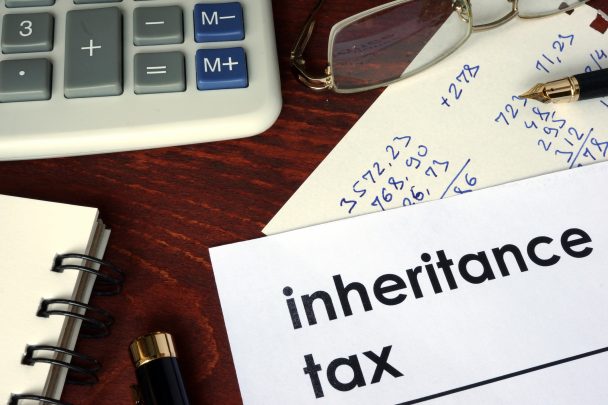2017 PA Inheritance Tax rates are unchanged. Pennsylvania imposes an inheritance tax on a decedent’s taxable estate. The tax applies to every dollar of the estate in excess of expenses and debts. There is no exemption nor is there an exclusion under which no tax will apply. The tax rate is dependent upon the relationship between the decedent and the beneficiary.

Tax rates on individually owned assets passing to beneficiaries at the death of a PA resident are as follows:
- A decedent’s spouse: 0.0%
- A decedent’s children or grandchildren: 4.5%
- A decedent’s siblings: 12%
- A decedent’s nieces, nephews & friends: 15%
- A decedent’s Parents: 4.5%
- Charities: 0.0%
Lifetime Gifts: There is no PA gift tax. However, all gifts made during the 12 months preceding the decedent’s date of death are brought back in and are taxable in the estate for PA Inheritance Tax purposes. There is a small $3,000 exclusion for gifts made during each calendar year of the 12 months prior to the date of death. For example, if John dies on May 1, 2017 and he made a gift of $103,000 to his son on December 30, 2016 and another $3,000 on January 1, 2017, only $100,000 will be brought back into John’s estate for PA inheritance tax purposes. The $3,000 exclusion applies to both the 2016 and the 2017 gifts made during the 12 months prior to John’s date of death.
Jointly Owned Assets: Pennsylvania imposes inheritance tax on the decedent’s percentage ownership interest of jointly-owned assets. For example, if John died owning a $100,000 account jointly with his son, $50,000 of that account would be subject to a 4.5% tax. For further description, if John died owning a $100,000 account jointly with his son and daughter, $33,333 of that account would be subject to a 4.5% tax.
In Trust For Or Beneficiary Accounts: Pennsylvania imposes inheritance tax on the entire value of accounts a decedent owned in his or her name alone and on which he or she designated beneficiaries.
Assets Owned In a Revocable Trust: Generally, if someone dies owning assets in a revocable trust over which he or she had access and control those assets will be 100% taxable for Pennsylvania inheritance tax purposes.
Assets Owned In An Irrevocable Trust: Irrevocable Trusts are taxed in a more complex way and you should consult counsel when determining if assets in an irrevocable trust are PA Inheritance taxable. Depending on how an irrevocable trust is written, the trust assets could either be inheritance taxable or not.

Life Insurance: Pennsylvania does not apply inheritance tax to the proceeds from life insurance on a decedent’s life.
In conclusion, The Pennsylvania Inheritance Tax system is rather complex and the above synopsis is just a thumbnail sketch of some of the most common issues. It is by no means intended to be exhaustive of all of the considerations. It is important to note that the Pennsylvania Inheritance Tax system is very different from the Federal Estate Tax system. It is common for the rules associated with the Federal Estate Tax system to run counter to those relating to the Pennsylvania Inheritance Tax system. We strongly suggest consulting legal counseling before preparing and filing the Pennsylvania Inheritance Tax return and/or the Federal Estate Tax return.
Our office works closely with executors and trustees to assist with probate and non-probate matters. In particular, we work with fiduciaries to prepare and file Pennsylvania Inheritance Tax returns and Federal Estate Tax returns as may be required.
We also work with clients during their lifetime to prepare cohesive estate and elder law plans to help minimize tax ramifications at death. Some of the most common planning considerations are: Creation of Last Will & Testament, Revocable Living Trust, Creation of a Medicaid Asset Protection Trust, use of a Medicaid Compliant Immediate Annuity, qualification of the Family Caregiver Exception, creation of the Caregiver Agreement, Irrevocable Burial Reserve, Monthly Gifting Exception, Elder Law Friendly Financial Power of Attorney, Medical Power of Attorney, Living Will.
Check out our other great articles throughout this site that more specifically address the different ways to protect and preserve your assets. Click here: Other Informative Blog Articles!
For PA Residents: To request our informative Elder Law Guides click here: Request Elder Law Guide Today!
To keep up-to-date with changing laws and new planning options sign up for our free newsletter by clicking here: Subscribe to the Newsletter Today!
For assistance developing a comprehensive estate plan or nursing home asset protection plan in Pennsylvania, please contact Douglas L. Kaune, Esquire at (610) 933-8069 or email him at dkaune@utbf.com. Doug’s entire practice is focused on elder law, Medicaid application, estate planning, trust planning, estate administration and protection of clients’ assets from nursing home spending and estate and inheritance taxation.
Unruh, Turner, Burke & Frees, P.C. is a full-service law firm which has three convenient office locations in Phoenixville, West Chester and Paoli, Pennsylvania. The firm primarily services clients in Chester, Montgomery, Delaware, Philadelphia, Bucks and Berks Counties, but can represent clients throughout Pennsylvania.


